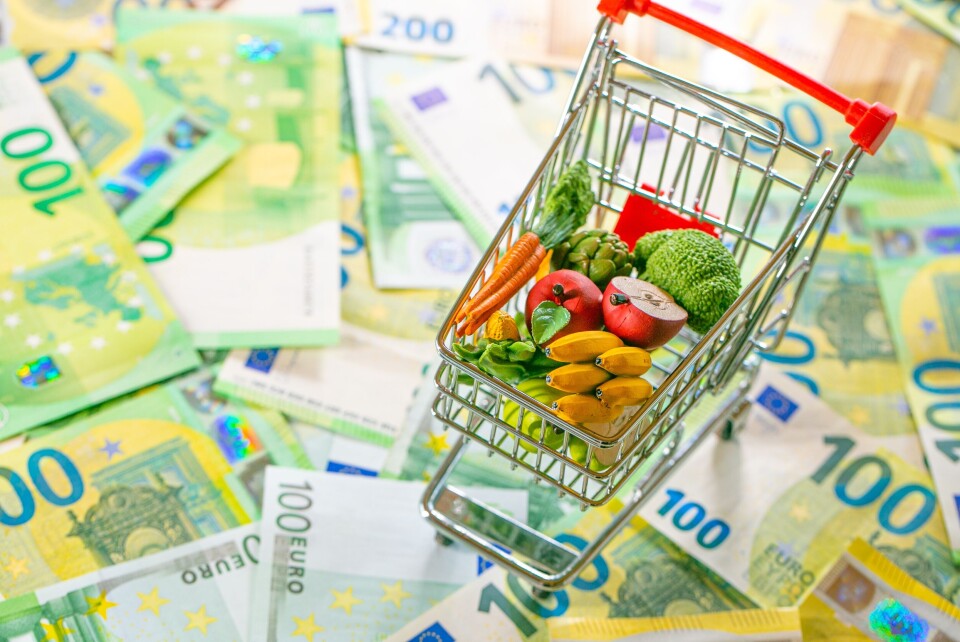-
‘No evidence third party involved’ in deaths of British couple in south-west France
Investigators update The Connexion on Dawn Kerr and Andrew Searle case
-
MPs push to remove low emission zones in France
Critics say the zones penalise lower-income households, but the government has warned abolishing them could cost billions
-
Trump tariffs: Americans in France hit by dollar drop
Europe has said the tariffs will cause the economy to ‘massively suffer’ as France plans retaliation
Are France’s measures to tackle food price rises working?
Consumer associations suggest some prices are actually rising but not at the same rate in all supermarkets

The ‘trimestre anti-inflation’, ‘price blocked’ products in supermarkets: France has introduced measures to help increase purchasing power amid soaring prices - but are they having an impact?
Prime Minister Elisabeth Borne has said that the ‘anti-inflation trimestre’ measure, which was launched a month ago, has enabled the country to avoid “an explosion of food and hygiene product prices.”
The measure involves a range of everyday items, chosen by supermarkets and for which the shops pledge to keep the prices as low as possible for the period March 15 to June 15. The products are identified by a special logo.
To read more about how this works see our article here:
French supermarkets begin drive to keep prices down on selected range
Ms Borne said: “What we’re seeing today is that prices have dropped by 5%.”
Commerce Minister Olivia Grégoire tweeted that some products had “even dropped by 7%” at some Super U-branded stores.
However both ministers called on supermarkets to do more to “respond to public worry about purchasing prices.”
Inflation going up?
However, the state statistics bureau Insee has said that inflation on food prices rose by 1.8% in March, month-on-month, continuing a trend of monthly rises.
Similarly, inflation on food products had risen by 19% year-on-year by this month (April), Insee said. This level has not been seen for four decades, said consumer association UFC-Que Choisir.
When asked to explain the difference, the prime minister’s office told news outlet TF1: “The price of products in shopping baskets in supermarkets participating in the anti-inflation trimestre have dropped by around 5% compared to the listed prices before the launch.”
However, the office admitted that this calculation had not been made on a specific list of products and that the prices had dropped by 5% on average, and not necessarily among the same products.
Prices have actually risen
Despite the government’s claims, UFC-Que Choisir said that the Super U figures referred only to 276 representative products bought by households between January 13 and April 13.
The price drop had not necessarily trickled down to the 150 products selected by the supermarket. The association said that its research showed Super U’s prices had actually increased over the course of the past three months, with an overall rise of 10%.
The supermarket with the lowest rise was E. Leclerc, at just 3%, it said.
The prices to have risen the most were:
- Dairy
- Spices
- Meat and fish
The products whose prices rose least were:
- Water
- Sodas and fizzy drinks
- Alcohol
However, these ‘low risers’ have still risen by 10% on average, year-on-year.
And when TF1 compared the prices of 15 products month-on-month, it found that 10 of them had increased.
Consumer association 60 Millions de consommateurs has ranked supermarkets in France by how many ‘accessible price’ products they are selling, and how many organic products they have in that list.
Its ranking includes:
- Système U, 150 products at cost price, 12% organic
- Intermarché, 500 products at ‘accessible price’, 3% organic
- Carrefour, 200 frozen prices, 2% organic
- Auchan, 150 frozen prices, 1% organic
- E.Leclerc, 979 frozen prices, none organic
- Casino, 500 frozen prices, 4% organic
- Monoprix, 300 frozen prices, 1% organic
Food prices are leading the charge when it comes to inflation, UFC-Que Choisir figures show. It found that between April 2022 and April 2023, supermarket prices had risen by 18.8%, with food specifically at a rise of 19%, and hygiene and beauty prices at 11%.
Electricity prices have risen by 16%, gas by 15%, and petrol by 11%. Household spending has risen by 8%, and transport costs by 8%. In contrast, the price of diesel has dropped by 1%.
Related articles
Major French supermarkets agree to keep essential food prices down
Third French supermarket to launch basket of cheaper everyday goods
French supermarket food prices to rise by 10%, warns industry chief
























